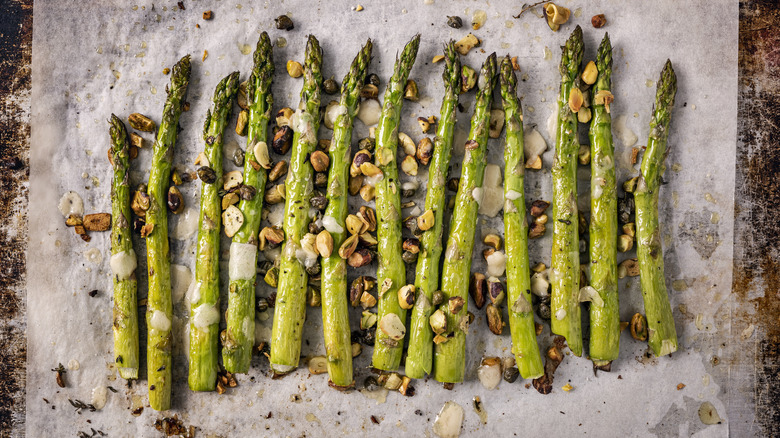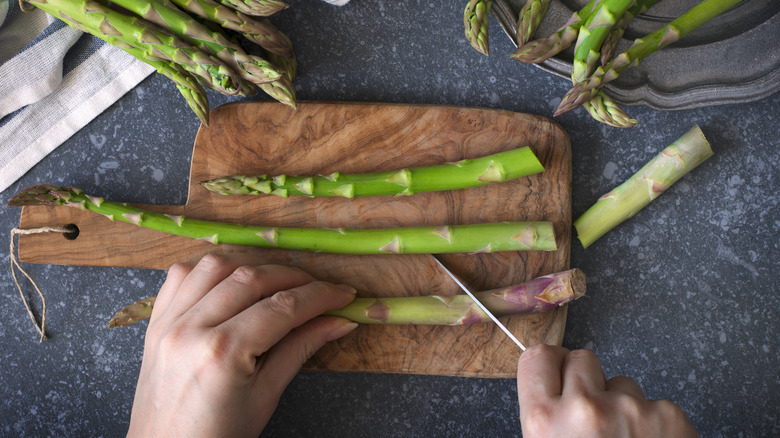Why You Need To Be Extra Mindful Of Time When Roasting Asparagus
Roasting vegetables gives them an inimitable flavor and texture that boiling, steaming, and sautéing can't achieve. Whether it's potatoes, Brussels sprouts, or peppers, roasting creates tender insides and crisp outsides, concentrating on the inherent flavor and adding caramelized, smoky flavors to the palette.
Roasting asparagus has the same delicious effect, but since it is a considerably more delicate vegetable than brassicas and tubers, you need to be extra mindful of how long you leave it in the oven. Achieving the caramelization and crisp edges that make roasted asparagus so delicious requires high temperatures — but it only takes a minute or two to over-roast asparagus, turning it into an inedibly charred, dried-out disaster.
The Tasting Table team's recipe for roasted asparagus recommends cooking them at 400 degrees Fahrenheit for 20 minutes. Other recipes recommend even higher temperatures like 425 degrees Fahrenheit for nine to 15 minutes. Whichever temperature you choose to roast your asparagus, vigilance is key. You could even set a timer a minute before the designated roasting time to check the status of the asparagus with your oven light.
There are also other factors that affect roasting time, including altitude, humidity, and ambient temperature. So, you might have to adjust the time depending on the conditions of your specific oven.
Other prep tips for roasted asparagus
Before popping asparagus in the oven, a few preparation tips will ensure proper roasting. The first is trimming the hard, rough ends off the asparagus as no amount of roasting will tenderize them. Washing asparagus under running water will rid it of dirt, but you need to dry it thoroughly after washing. Any residual water will inhibit roasting oils from properly coating the asparagus, increasing the likelihood of it burning in the oven.
Furthermore, it's also important to fully coat the asparagus in oil and seasonings to get a uniform texture and flavor. Overcoating it will hamper asparagus' desired texture and overwhelm its flavor. Olive oil is a flavorful fat to enhance asparagus with earthiness, but avocado oil is another great choice. While salt and pepper are all the seasoning asparagus needs, there are countless possibilities to upgrade roasted asparagus; parmesan and red pepper flakes, lemon zest and smoked paprika, and garlic powder are a few examples.
Another crucial tip for roasting asparagus, or any vegetable, is to ensure that you space each stalk far enough apart for even roasting. If you crowd vegetables, you won't get those wonderfully crispy edges.

